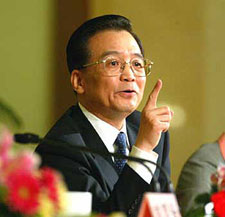U.S. Treasury Bonds, Till Debt Do Us Part
Interest-Rates / US Bonds Mar 05, 2010 - 08:11 AM GMTBy: Tony_Sagami
 Millions, billions, trillions. It is hard to wrap your brain around numbers that big, but I think our politicians don’t even bother to try.
Millions, billions, trillions. It is hard to wrap your brain around numbers that big, but I think our politicians don’t even bother to try.
On February 1, President Obama released his 2010 budget that projects the U.S. deficit to grow to a record $1.56 trillion, an increase over last year’s record of $1.4 trillion deficit.
One consequence of all that spending is that someone has to buy all the Treasury bonds we keep issuing to finance these trillion dollar deficits. In most cases, the people buying those bonds are Asians.
According to the U.S. Treasury Department, China owns $894.8 billion of our Treasury bonds, making it the largest holder of American debt in the world. Japan, by the way, is the second largest holder with $768 billion.
The Chinese, however, are losing their appetite for our seemingly endless spending spree and are starting to reduce their holdings of our government debt. In December (the most recent numbers), China cut its portfolio of U.S. government bonds by $34.2 billion.
For years, China has steadily increased its bonds holdings so this change is a clear warning signal that China isn’t willing to be America’s global sugar daddy any more.
The depreciation of the dollar has become an inevitable historical trend,” said Zheng Xinli, vice president of China Center for International Economic Exchanges.
That’s a harsh criticism, but the biggest Chinese cheese of all, Chinese Premier Wen Jiabao, issued a similar warning: “To be honest, I am definitely a little worried. We have loaned huge amounts of money to the United States, so of course, we have to be concerned. We hope the United States honors its word and ensures the safety of Chinese assets.”
 |
| Chinese Premier Wen Jiabao has expressed his concerns over the U.S. debt situation. |
Sure, our runaway spending is eroding global confidence in the dollar. But we’ve been running deficits for years and although the Obama administration has taken government spending to insanely high levels, I think the catalyst behind the change is more political than economic.
The Chinese are furious over Obama’s decision to sell $6.4 billion worth of arms — Black Hawk helicopters, F-16 fighters, communications equipment and 114 Patriot missiles — to Taiwan.
This so enraged the Chinese leaders that a group of high-ranking military officers publicly urged China to dump its U.S. Treasury holdings.
![]() Huang Xueping, a top official at the Chinese Ministry of National Defense, urged the U.S. to “speak and act cautiously” or risk serious damage to the relationship between the two countries.
Huang Xueping, a top official at the Chinese Ministry of National Defense, urged the U.S. to “speak and act cautiously” or risk serious damage to the relationship between the two countries.
![]() Qin Gang, a Foreign Ministry spokesman, warned that arms sales threaten China’s security and said “the people who tied the knot should untie the knot.”
Qin Gang, a Foreign Ministry spokesman, warned that arms sales threaten China’s security and said “the people who tied the knot should untie the knot.”
![]() Luo Yuan, a researcher at the Academy of Military Sciences, added “our retaliation should not be restricted to merely military matters, and we should adopt a strategic package of counter-punches covering politics, military affairs, diplomacy and economics to treat both the symptoms and root cause of this disease. For example, we could sanction them using economic means, such as dumping some U.S. government bonds.”
Luo Yuan, a researcher at the Academy of Military Sciences, added “our retaliation should not be restricted to merely military matters, and we should adopt a strategic package of counter-punches covering politics, military affairs, diplomacy and economics to treat both the symptoms and root cause of this disease. For example, we could sanction them using economic means, such as dumping some U.S. government bonds.”
Another side effect of the arms sales to Taiwan is an increased committed to military spending by the Chinese.
Last year, China spent US$70.4 billion on its military, a 14.9% from 2008, continuing a nearly unbroken succession of double-digit increases over more than two decades. Defense companies are licking their chops at the mega-bucks China is going to drop on military hardware.
Traditional defense contractors like General Dynamics, Lockheed Martin, and Raytheon could do well and if you’re more of an ETF investor, you should consider the PowerShare Aerospace & Defense (PPA) exchange traded fund.
The end result of all this China angst is simple with three inevitable results: (1) the U.S. dollar is headed lower, (2) interest rates are headed higher, and (3) inflation is coming back.
 |
| U.S. plans to sell arms to Taiwan has China infuriated and threatening to dump Treasuries. |
How to profit from a falling dollar: INVEST IN NON-DOLLAR CURRENCY FUNDS. Funds like Merck Hard Currency fund (MERKX) , whichinvests in the short-term AAA debt of the world’s economies with the strongest economies and monetary policies, will profit from a declining dollar.
How to profit from rising interest rates: INVEST IN INVERSE BOND FUNDS. There are inverse bond fund that make money when interest rates rise, such as Rydex Juno (RYJUX) and ProFunds Rising Rates (RRPIX).
How to profit from a return of inflation: INVEST IN A MOUTNAIN OF INFLATION-FIGHTING HARD ASSETS. Hard assets — gold, oil, copper, coal, uranium, timber, potash, iron ore, cement, etc. — are one of the few asset classes that could thrive in the falling dollar trade war that I see coming. Also consider hard assets companies, such as China National Offshore Oil Corporation (NYSE: CEO), Yanzhou Coal (NYSE: YZC), and BHP Billiton (NYSE: BHP). But my best advice would be to pay careful attention to what my colleague Larry Edelson, the country’s top adviser on hard asset stocks, has to say.
Lastly, the worst mistake you can make is to do nothing. If you’re like most U.S. investors I know, the vast majority of your portfolio is invested in U.S. stocks and U.S. bonds, both of which will get hammered by the global lack of confidence in our dollar.
Best wishes,
Tony
This investment news is brought to you by Uncommon Wisdom. Uncommon Wisdom is a free daily investment newsletter from Weiss Research analysts offering the latest investing news and financial insights for the stock market, precious metals, natural resources, Asian and South American markets. From time to time, the authors of Uncommon Wisdom also cover other topics they feel can contribute to making you healthy, wealthy and wise. To view archives or subscribe, visit http://www.uncommonwisdomdaily.com.
© 2005-2022 http://www.MarketOracle.co.uk - The Market Oracle is a FREE Daily Financial Markets Analysis & Forecasting online publication.



